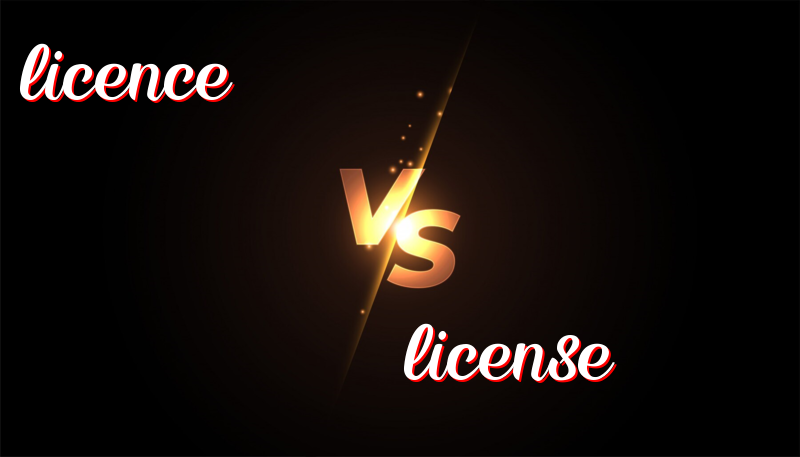Licence vs. License: What’s the Difference?
Licence vs. License
These two words are often confusing; they look similar but have different rules and uses. Let’s explore their history, how to use them, and a trick to remember the difference.
History
Both “licence” and “license” come from the Latin word “licentia,” meaning “freedom” or “permission.” Over time, they branched into English with small changes in spelling.
How to Use Them
Licence
“Licence” is a noun. In British English, it means a document that gives permission to do something, like drive a car.
- He showed his driving licence to the officer.
- She needs a licence to sell food in the market.
- The dog has a licence tag on its collar.
- The shop must display its licence clearly.
- The licence allows them to open the business.
License
“License” is a verb and also a noun in American English. As a verb, it means to give permission to do something. As a noun, it means the same as “licence” in British English.
- They will license the new driver next week. (verb)
- The company is licensed to sell medicine. (verb)
- Can you license this software for me? (verb)
- He has a fishing license. (noun, US English)
- The license allows her to practice law. (noun, US English)
Trick to Remember the Difference
To remember the difference, think of “c” in “licence” for “Country” (British). In American English, use “s” for “State” as in the “United States”.
Summary
In British English, use “licence” for nouns. In American English, use “license” for both nouns and verbs. Remember the “c” and “s” trick to keep them straight!

Leave a Reply
You must be logged in to post a comment.